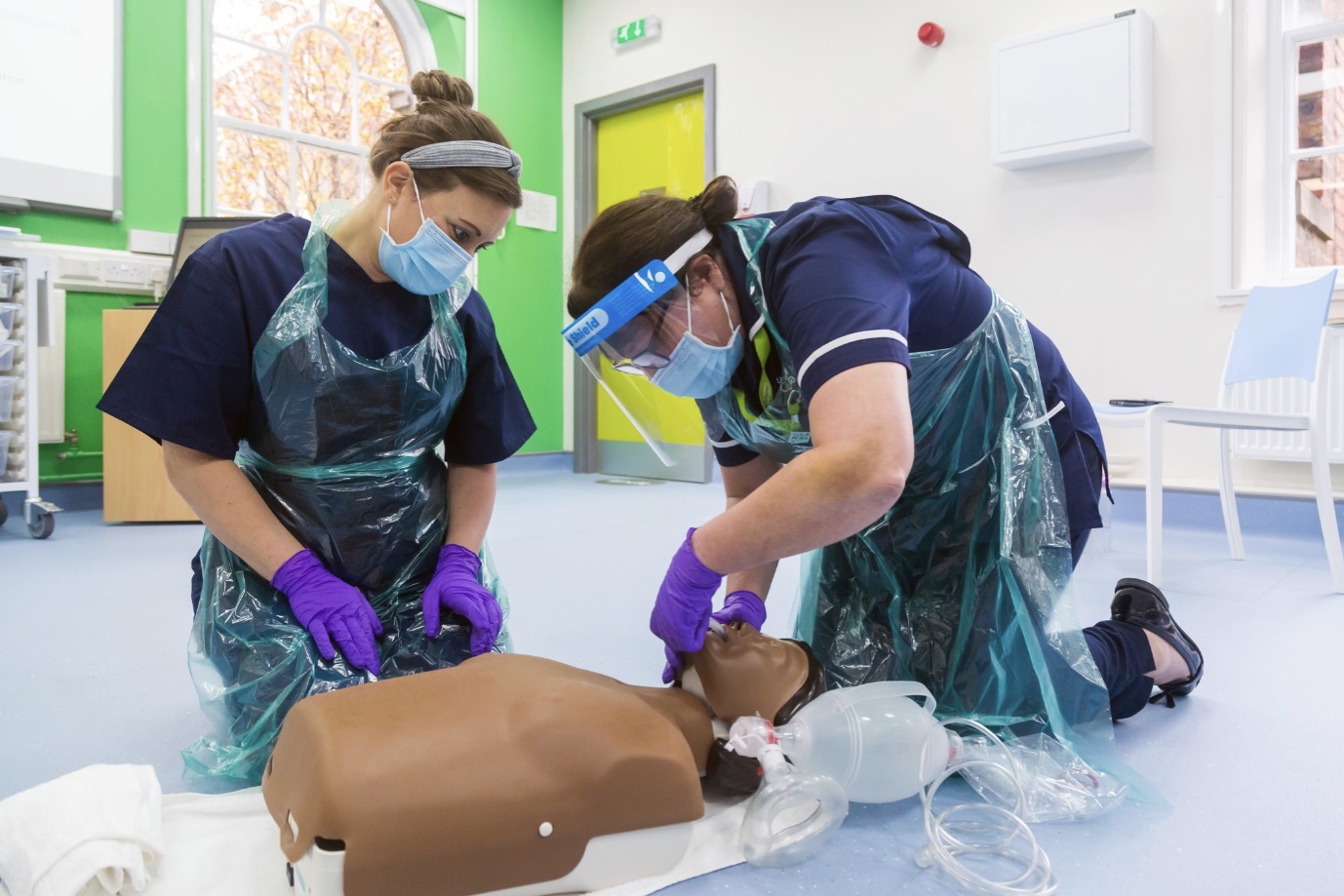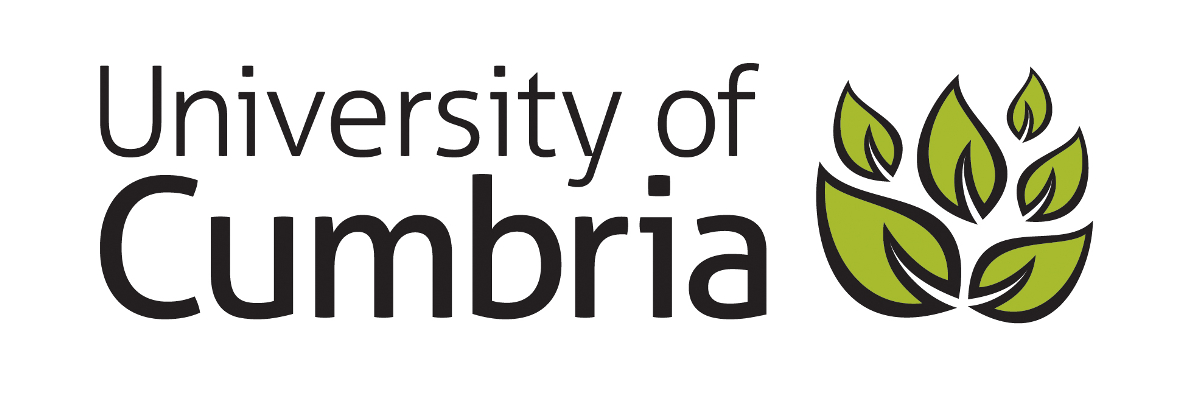Introduction
The university is continuing to grow, expanding in geographical terms as well as academic scope.
Study Midwifery at the University of Cumbria
If you want to learn to provide skilled and compassionate care to birthing parents, newborns and their families during this significant period in their lives, then our Midwifery Degrees are for you.
Our course provides specialist training and support for you to join the Nursing and Midwifery Council and get you started as a fully qualified midwife.
You’ll spend 50% of your time in practice, working with highly skilled professionals you will support birthing parents and their families to access health care to boost your skills and confidence.
You will experience midwifery care in all settings, working with continuity of care teams, on consultant-led units, birth centres and within the community. Alongside this, you will experience bespoke placements in neonatal units, theatres, and medical and surgical wards. Elective placement weeks are built into each year of the programme where you can take the opportunity to experience midwifery practise elsewhere in the country and/or abroad. The placements aim to ensure you experience all care settings.
Theory is delivered by expert teaching staff and is based on the latest evidence and research, using modern teaching methods and technology.


On this course you will…
- Boost your academic and clinical skills with practical sessions in our state-of-the-art clinical simulation facilities.
- Be closely supported by passionate lecturers who bring invaluable experience to teaching and provide excellent pastoral support.
- Benefit from exciting, diverse placements providing you with experience of a variety of healthcare systems across inner-city and rural areas, widening your midwifery experience and learning.
- Apply midwifery theory to real-life midwifery care in practise, so that you are confident and competent in supporting birthing parents and their families through pregnancy, birth and postnatal period.
- Complete the course eligible for registration with the Nursing and Midwifery Council (NMC). You’ll be recognised as a safe and competent midwife ready for employment
WHAT YOU WILL LEARN
This programme will fully prepare you for your future as a midwife, in line with the NMC standards of proficiency for midwives. You will study the important values highlighted in the NHS Constitution (2015), such as treating people with respect, dignity and compassion, and getting the basics right every time by putting birthing parents and their families first.
Modules are designed to become progressively challenging at each level using learning and achievement from earlier levels as a foundation. Continuity of care and carer is linked to improved health outcomes for the birth parent and baby. Midwives are the first point of contact for the birth parent and the lead health professional in maternity services playing a crucial role in coordinating and navigating maternity care, requiring essential leadership skills.
You will explore infant feeding, as mapped against the UNICEF Baby Friendly Initiative Standards.
Year one
- Midwifery Practice 1
Develop fundamental midwifery skills, professionalism and knowledge. - Universal Care 1
Explore principles of universal care for all the birthing parent, newborns and families, and the underpinning anatomy and physiology related to the childbearing continuum. - The Midwife as Professional 1
Develop professional knowledge in relation to legal, ethical and regulatory frameworks, and to understand effective communication strategies. - The Midwife as Scholar 1
Gain an understanding of the academic skills required to support evidence-based practice and continuous professional development. - Additional Care 1
Develop an understanding of pre-existing physical and mental health conditions and situations experienced by the birthing parent, and conditions and complications arising in pregnancy, childbirth and the postpartum period.
Year two
- Midwifery Practice 2
Further midwifery skills, knowledge and professionalism. - Universal Care 2
Apply knowledge in relation to the principles of universal care for all birthing parents, newborns and families. - The Midwife as Professional 2
Introduction of midwifery knowledge and skills in advocacy, leadership, accountability and collaboration, working towards autonomous professional practise. - The Midwife as Scholar 2
Further analyse a variety of research and relate it to midwifery practice, to provide evidence-based care for birthing parents, newborns and their families. - Additional Care 2
Develop skills and knowledge required to manage childbirth emergencies, including situational awareness and advanced communication. - Part 2 Practice Assessment
Year three
- Midwifery Practice 3
Mandatory core skills training for year three, including basic life support, personal safety, and manual handling. - Physical Assessment and Management of the Newborn
Explore the effects of pregnancy complications on fetal development and newborn well-being. - The Midwife as Scholar 3
Research proposal process including literature review, research design, methodology, rigour in research, evaluation and dissemination of results. - Midwife as Professional 3
Content of this module will be led by your independent learning around the chosen topic in relation to module outcomes.
NMC STANDARDS FOR PROFICIENCY IN CLINICAL PRACTICE
The NMC proficiencies will include one practice module per year which, will be summatively assessed and graded.
A failed placement will be allowed one further attempt to recoup the fail. Failure of a second attempt at practice assessment will normally mean discontinuation from the programme. Qualified Practice Assessors assess your acquisition of skills and achievement of the NMC proficiencies in clinical practice. Practice Assessors alongside Academic Assessors will confirm you are proficient to progress to NMC registration. Practice Supervisors and Assessors involve service users’ opinions when assessing you.
Your professionalism, attitude, good health and character are vital aspects of this assessment. Most theoretical work is linked to practice in some way and assessors will explore your underpinning knowledge, and how your personal and professional characteristics impact performance
ENTRY REQUIREMENTS
A-levels: BBB-ABB to include Biology or PE at grade B (40 points)
T-levels: M-D T levels Healthcare Science and Health are accepted for entry to this course
Access to HE: 24 Credits at Distinction & 21 at Merit – 30 Credits at Distinction to 15 at Merit to include 21 credits in Biology or Human Physiology. We can accept 18 credits if Cell Biology is taken with 0 credits.
CACHE Technical Level 3 and Level 3 Extended Diploma: B – A specific units required – Human Growth and Development and Anatomy and Physiology
OCR Cambridge Technical & Edexcel/Pearson BTEC Level 3 (National) Extended Diploma: DDM specific units required – Sexual Health; Reproduction and Early Development Stages
Scottish Highers: 120-128 UCAS Tariff Points preferably from 4 Highers to include A (33 points) in Biology
Irish LC Highers: 120-128 UCAS Tariff Points preferably from 4 Irish Leaving Certificate Highers to include A2 (30 points) in Biology
Other experience: We are unable to accept Cambridge Technical Certificate. We are unable to accept English, Maths and Science from Access to HE. Experience in health related settings such as a hospital or primary care health centre prior to application is preferred but not essential
Alternative routes: If don’t think you’ll meet the criteria for direct application to this course, you could potentially undertake BSc Hons Adult Nursing and then move onto the MSc in Midwifery if a 2:1 or above classification is achieved.
FAIR ADMISSIONS
When you apply, our Admissions specialists will review your whole application. We are looking for your potential to succeed so will assess your qualifications, any relevant work experience, your personal statement, and references.
At interview we will assess your suitability to train for the profession you have applied for. All professional course interviews are scored. Any offers made will be based on your whole application and your interview score.
Where you have received a conditional offer subject to achieving particular grades/UCAS tariff scores, and do not quite meet these scores, please try not to worry, where vacancies exist our Admissions specialists will review your whole application again and take account of any mitigating circumstances and reassess your suitability for the course.
SELECTION CRITERIA
As part of the application and selection process, we are looking for your commitment to Midwifery. In your personal statement, you should demonstrate your motivation for choosing Midwifery, and reflect upon any practical experience you have gained.
You must complete and pass a short online assessment.
If you are invited to attend interview then we strongly recommend you review the NHS Values and Behaviours of; Working together for Patients, Respect and Dignity, Commitment to Quality of Care, Compassion, Improving Lives, and Everyone Counts.
At interview you must clearly explain what has led you to apply for Midwifery and the attributes you would bring to it. You must also demonstrate that you have thought carefully about the influences on birth parents’ health and the nature of Midwifery in the 21st Century.
You must be able to explain how you anticipate transferring your personal qualities, skills, knowledge and values from life and/or any work experiences to a Midwifery programme.
CONTEXTUAL ADMISSIONS
Going to higher education can transform a person’s life. We use contextual admissions to make sure that we are accessible to everyone who has the potential to succeed. Qualifications and grades are important, but they are considered alongside other information that helps universities to identify potential and widen access to university level study. For some individuals, the disadvantages they have experienced in their life mean that they have not been able to demonstrate their full academic potential. Where a person lives and their personal circumstances can all affect their educational attainment.
Contact ugadmissions@cumbria.ac.uk for more information.
RETURNING TO EDUCATION
If you are over 21 and returning to study after being in relevant employment for a minimum of 3 years and do not meet the published entry requirements for Year 1 of our degree courses, please do not assume you are not qualified to join us. Our experienced Admissions and Academic staff will review your prior qualifications and professional experience to support your application


